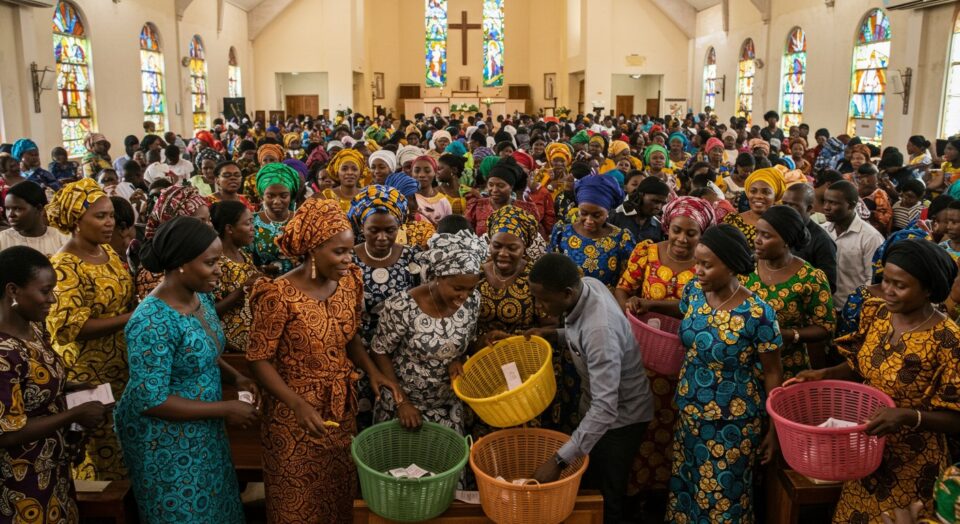TOP STORY | Uganda Named Among World’s Most Generous Nations, But Rising Scams Threaten Spirit of Giving
Kampala, August 14, 2025 – On any given Sunday across Uganda, the clink of coins and rustle of notes echo through churches as offering baskets pass from hand to hand. For millions, the act of giving is as familiar as prayer—rooted in faith, community, and a shared belief in uplifting others.
Now, that quiet generosity has earned Uganda a spot on the global stage.
According to the World Giving Report 2025, Uganda ranks 6th globally in generosity by income given—with nearly 8 in 10 Ugandans donating money in 2024, contributing an average of 2.04% of their income, nearly double the global average.
The report, compiled by the CivLegacy Foundation and Charities Aid Foundation, reveals a culture where giving is not seasonal or performative, but a daily way of life deeply tied to religion, empathy, and community solidarity.
“Giving Is How We Live”
Religious institutions remain central to Uganda’s giving culture. The report found that 57% of donations go directly to churches, mosques, or temples—often the first, and sometimes only, institutions people turn to in times of crisis.
“Generosity is part of our faith,” says Andrew Semakula, a Catholic in Kampala. “We give because we believe it’s our duty—not just to God, but to each other.”
“Churches and mosques aren’t just places of worship,” adds Phillip Tukamushaba, another Kampala resident. “They are support systems, especially where government services fall short.”
Ugandans also give more when they know the recipient personally. Whether it’s donating to a sick neighbour via mobile money, or contributing to a local school fundraiser, trust and connection fuel most donations—often bypassing large, formal charities.
Ubuntu in Action: Giving Despite the Odds
Uganda’s culture of giving is underpinned by Ubuntu—the African philosophy that “I am because we are.”
Even amid economic hardship, 44% of Ugandans volunteered their time in 2024, nearly twice the global average, dedicating an average of 16.5 hours per year to community causes.
“With limited public services, it’s Ugandans themselves who fill the gaps,” explains Josephine Atuhaire of CivSource Africa. “It’s not about surplus—it’s about solidarity.”
Despite widespread poverty, many give because they know what it’s like to go without, says philanthropy advisor Jackie Asiimwe.
“Even in wealthy countries, it’s often the lower-income communities who give more. They understand the need because they live it.”
Still, 63% of those who don’t give cite affordability. Others give in-kind—offering food, labour, or clothing—especially in rural areas where cash is scarce.
Faith, Trust—and Exploitation
But with trust comes vulnerability.
Uganda’s rising generosity has also attracted opportunists. Just last week, social media erupted with claims that a woman known as “Mama D” had faked a medical emergency to solicit donations—a reminder that not all appeals are genuine.
In another case, Rita Namutebi, a church volunteer, rallied friends to give clothes and UGX 800,000 to a man claiming to support street children. Weeks later, their donations turned up for sale in a second-hand shop.
“We trusted him completely,” she says. “And he betrayed that trust.”
Such scams are common, experts say, but rarely reported.
“Most victims feel ashamed, or think reporting won’t help,” says Luke Owoyesigire, deputy spokesperson for Kampala Metropolitan Police. “But it’s time we treated donation fraud like any other crime.”
A Culture of Humble Giving
Despite its top-10 global ranking, Ugandans rank themselves just 62nd in generosity. Researchers say the gap reflects cultural humility: Ugandans give quietly, not for recognition, and view generosity as a basic human obligation—not an achievement.
“Giving here isn’t about awards or tax write-offs,” says Asiimwe. “It’s about caring for your neighbour.”
That humility may also contribute to the lack of regulation or oversight in the giving space. With few formal frameworks, donations are often handed over with little documentation—making it easy for scammers to exploit goodwill.
Digital Giving on the Rise
While churches remain the top influence on giving, the digital age is slowly reshaping the landscape:
- 22% hear about causes through religious communities
- 17% through personal recommendations
- Just 9% via media or street campaigns
- 14% are now discovering charities through social media
That trend suggests mobile phones may soon rival pulpits as a primary gateway to giving, especially among the youth.
The Path Forward: Protecting Generosity
The report paints a powerful picture: in Uganda, generosity is a way of life. It builds schools. It supports orphans. It fills the gap where government systems falter.
But it also raises critical questions: How can this goodwill be protected? How do we balance informal giving with accountability? And what frameworks can be created to safeguard both donors and recipients?
“We need a formal giving infrastructure,” says Asiimwe. “Not to kill the culture, but to protect it.”
A Nation of Givers, A Legacy Worth Guarding
From Sunday offerings to mobile donations, from volunteering at health camps to building schools brick by brick, Uganda’s spirit of giving remains one of its greatest strengths.
But as the country rises in the global rankings, so too must its safeguards—ensuring that every coin, note, and sack of maize reaches those truly in need.
For Ugandans, giving isn’t about wealth—it’s about who they are. And that’s a legacy worth protecting.
Related:
- [How Churches Are Filling the Gaps in Uganda’s Public Services]
- [Scammers Exploiting Uganda’s Giving Culture: What You Should Know]
- [Inside the World Giving Report 2025: Global Trends in Generosity]
